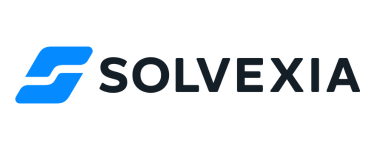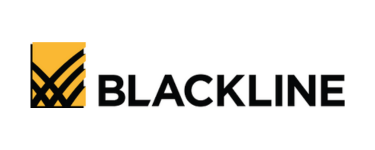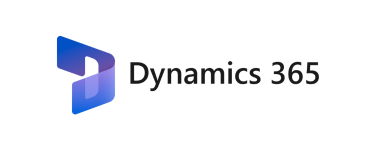5 Best Finance Automation Tools for 2026

Do manual spreadsheets and tedious data entry bog down your finance operations? Clinging to outdated methods can severely hinder productivity and growth. Imagine transforming your finance department with cutting-edge finance automation tools.
By embracing new technologies, you can free your team from mundane tasks. You can instead focus resources on strategic initiatives that drive business growth and success. Dive into this comprehensive blog post to explore the top finance automation tools for 2026. Discover how these solutions can streamline your financial operations and position your organization at the forefront of innovation.
Coming Up
1. What are the Top 5 Finance Automation Tools for 2026?
2. What is Finance Automation?
3. What are Finance Automation Tools?
4. What are the Benefits of Finance Automation Tools?
5. Which Finance Processes Should be Automated?
6. How to Choose the Best Finance Automation Tool?
7. What are the Trends in Finance Automation?
8. What are the Steps to Setup Finance Automation?
9. What are the Risks of Finance Automation?
10. How to Overcome Common Challenges in Finance Automation?
11. What are Frequently Asked Questions about Finance Automation?
What are the Top 5 Finance Automation Tools for 2026?
We've curated a list of the top finance automation tools shaping the industry in 2026 based on extensive research. Let's explore each one in detail:
1. Solvexia

Solvexia stands out as a finance automation platform, empowering businesses to automate work from start to finish. This robust system offers advanced analytics, automated report generation, account reconciliation, and more.
With its cloud-based architecture, Solvexia can be up and running within a mere 30 minutes without the need for extensive IT involvement. Once deployed, Solvexia becomes a catalyst for saving time, boosting productivity, and achieving genuine financial transformation.
2. BlackLine

BlackLine is a powerful financial automation tool focused on financial close and reconciliation. With its advanced capabilities, BlackLine helps prevent fraud and streamlines the financial close process, among other critical functions. Leverage this software to automate accounts receivable, reconcile accounts seamlessly, generate insightful management reports, and more.
3. Microsoft Dynamics

Microsoft Dynamics emerges as a robust automation platform that seamlessly integrates finance tasks and the functions between them. This solution syncs accounting functions like financial planning, payroll, and inventory, providing a holistic view of your financial operations. Although the platform has a learning curve, once you master its intricacies, it becomes a powerhouse for automating many processes.
4. Xero

Xero is rapidly gaining traction among accountants and small businesses thanks to its user-friendly interface and out-of-the-box functionality. Even non-accountants can easily navigate and understand Xero's features, making it an accessible solution.
The cloud-based platform effortlessly pulls data directly from banks, eliminating the hassle of manual bookkeeping. Financial advisors and non-accountants can gain immediate access to critical data, staying informed and empowered. Xero's seamless integration with various business systems, including CRMs and e-commerce platforms, further enhances its versatility.
5. QuickBooks

QuickBooks emerges as a go-to solution for freelancers, small businesses, and mid-size enterprises looking to streamline their accounting, payroll, and payment processes. By automating accounting tasks, QuickBooks simplifies tax management, enables seamless invoicing and tracking, and provides real-time insights into your cash flow.
This user-friendly tool empowers businesses to take control of their finances easily and confidently.
What is Finance Automation?
Finance automation refers to the use of technology to streamline, standardize, and optimize financial processes. By automating repetitive tasks such as reconciliation, reporting, and data entry, your team can reduce human error, improve efficiency, and focus on strategic activities.
Finance automation tools integrate with existing systems to provide real-time insights, reduce manual effort, and ensure compliance. These tools are essential for organizations looking to enhance productivity and accuracy in managing their financial workflows.
What are Finance Automation Tools?
Financial automation solutions are transforming the day-to-day activities of finance departments, financial services, and professionals. Time-sensitive processes must be executed flawlessly in finance to ensure smooth business operations. This is where automated finance solutions step in. These tools take over the execution of processes with greater speed and precision. Leveraging automation and artificial intelligence tools can help you shift your focus from spreadsheets and data manipulation to problem-solving, ideation, and strategic initiatives.
These solutions seamlessly integrate with your existing technologies, providing a comprehensive 360-degree view of your business operations and financial health. Armed with this invaluable information, decision-makers can make informed choices and craft effective business strategies that propel your organization to new heights.
What are the Benefits of Finance Automation Tools?
The advantages of implementing financial automation systems are profound. Let's explore the key benefits in detail:
- Time Savings: End-to-end automation liberates you from tedious and time-consuming tasks. With financial automation software, you eliminate the risk of key person dependencies or bottlenecks, which can lead to costly delays and ripple effects across your business.
- Error Reduction: Automation software drastically minimizes manual errors. As a result, your financial processes, such as accounts receivable and accounts payable, are executed faster and more accurately, ensuring the integrity of your financial statements and general ledger.
- Enhanced Compliance: Regulations constantly change, and processes must adapt accordingly. Financial automation solutions enable you to swiftly tweak, halt, or redesign financial processes to maintain compliance easily.
- Employee Satisfaction: Manually locating, retrieving, formatting, and transforming data can be exhausting and repetitive, leading to fatigue and feeling like a cog in a machine. You can allocate time to more creative and strategic endeavors by leveraging finance automation solutions.
Which Finance Processes Should be Automated?
Automating finance processes not only saves time but also reduces errors and enhances data accuracy. Here are the key processes your team should focus on automating:
1. Accounts Payable (AP)
Accounts payable automation simplifies the management of invoices, approvals, and payments. By automating AP, your team can eliminate manual data entry, prevent duplicate payments, and reduce processing times. This leads to faster payment cycles, improved supplier relationships, and real-time financial visibility.
2. Accounts Receivable (AR)
Automation of accounts receivable ensures timely invoice generation and efficient collection tracking. With automated reminders and payment follow-ups, your business can accelerate cash flow while minimizing the risk of delayed payments and bad debt.
3. Reconciliation
Manual reconciliation of accounts is time-consuming and prone to errors. Automating this process allows your team to match transactions across multiple accounts, detect discrepancies, and ensure accurate reporting. Automated reconciliation can also help meet regulatory requirements and maintain audit readiness.
4. Financial Reporting
Generating financial reports manually is a labor-intensive process that can lead to inaccuracies. By automating reporting, you can quickly generate real-time financial statements, customize dashboards, and streamline regulatory compliance. Automated reporting tools ensure data consistency and enable better decision-making.
5. Expense Management
Tracking employee expenses manually can be inefficient and lead to expense fraud or errors. Automated expense management solutions allow employees to submit receipts digitally, while automatically enforcing expense policies and generating reports for better cost control.
6. Payroll Processing
Payroll is a critical process that can benefit greatly from automation. Automating payroll ensures timely salary payments, compliance with tax regulations, and accurate deductions for benefits and taxes. This reduces the administrative burden on your HR and finance teams.
To explore solutions for automating these finance processes, visit financial automation and see how automation can transform your workflows.
How to Choose the Best Finance Automation Tool?
Embarking on the journey of selecting the best financial automation software for your business shouldn't be daunting or overwhelming.
When searching for a solution, consider the following essential features:
Cloud-Based Accessibility:
Your team needs the flexibility to work from anywhere. A cloud-based solution ensures secure access to data, regardless of location, empowering your workforce to be productive and collaborative.
Intuitive User Interface:
Opt for a tool that is easy to use, regardless of your technical knowledge. Seek solutions that deploy out-of-the-box and feature an intuitive and user-friendly visual interface, eliminating the need for extensive IT involvement in setup and maintenance.
Cost-Effectiveness:
Cost is an inevitable consideration in any business decision, and selecting automation software is no exception. Narrow down your options based on your business size and budget, ensuring you balance functionality and affordability.
Client-Centric Reporting:
If you frequently share reports with external stakeholders, choose a solution that generates professional, client-friendly outputs that enhance your brand image and communication effectiveness.
Robust Support:
Opt for a vendor that offers dedicated customer support. Whether you need help with an issue or need guidance on new features, having a reliable and responsive support team by your side can make all the difference in your automation journey.
What are the Trends in Finance Automation?
As we look towards the horizon, the landscape of finance automation is poised for remarkable advancements. The rapid evolution of technologies such as artificial intelligence (AI), machine learning, and blockchain is set to reshape how businesses approach their financial operations. Let's explore some of the most exciting future trends and innovations in finance automation.
Artificial Intelligence and Machine Learning
One of the most promising developments is the integration of AI-powered predictive analytics. By leveraging vast amounts of historical data and sophisticated algorithms, these systems can forecast financial trends, identify potential risks, and provide data-driven insights for strategic decision-making. This proactive approach to financial management will enable businesses to stay ahead of the curve and quickly adapt to changing market conditions.
Another innovation is the application of machine learning in fraud detection and prevention. As financial transactions become increasingly digital, the risk of fraudulent activities also rises. Machine learning algorithms can analyze real-time patterns and anomalies, flagging suspicious transactions and mitigating potential losses. This enhanced security measure will give businesses greater peace of mind and protect their financial assets.
Blockchain
Blockchain technology is also set to revolutionize finance automation. By enabling secure, decentralized, and transparent record-keeping, blockchain can streamline complex financial processes, reduce the risk of errors, and enhance trust among stakeholders. From cross-border payments to smart contracts, the potential applications of blockchain in finance are vast and transformative.
As these emerging technologies mature and integrate with existing finance automation tools, businesses can expect a new era of efficiency, accuracy, and innovation. Embracing these future trends will be key to staying competitive and thriving in the digital age.
What are the Steps to Setup Finance Automation?
Implementing finance automation requires careful planning to ensure smooth execution. Follow these steps to set up automation effectively:
1. Identify Current Processes
First, determine which processes are ideal for automation. Focus on repetitive tasks that don't require human creativity, such as invoice reminders or reconciliations. Prioritize one process to automate first for maximum efficiency.
2. Evaluate Your Existing Setup
Review your current systems and tools to ensure compatibility with automation platforms. Look for software that integrates your existing applications seamlessly. Tools like Zapier and Integrify can help unify these systems, enabling efficient automation.
3. Assign a Stakeholder
Even with automation, it’s essential to have someone oversee the workflows. Assign a stakeholder or team to monitor processes, address issues, and ensure the system runs smoothly.
4. Set Up Workflows
Create workflows with clearly defined triggers, actions, and results. For example, if an invoice is past due (trigger), an automated reminder email is sent (action), and the customer makes a payment (result).
5. Test the Workflows
Test your workflows thoroughly before full implementation. This ensures everything runs as intended and allows your team to focus on higher-value tasks.
What are the Risks of Finance Automation?
While finance automation enhances efficiency, it also poses some risks:
1. Compliance Issues
Automation errors can lead to inaccurate regulatory reporting, putting your business at risk of fines, sanctions, or legal actions if reports are incomplete or incorrect.
2. Technology Failures
Poorly designed automation tools or bots can disrupt IT infrastructure, and routine maintenance may interfere with automated processes, causing delays and errors.
3. Employee Morale
Introducing automation can spark fears of job loss. Miscommunication may harm morale, so it’s crucial to emphasize how automation allows employees to focus on higher-level, strategic tasks.
4. Inaccurate Reporting
If not properly implemented, finance automation can result in incomplete or inaccurate reports, damaging your business’s reputation and leading to financial restatements.
5. Operational Inefficiencies
Badly designed automation systems can increase errors and slow operations. Regular oversight and maintenance are vital to avoid these issues.
However, with thoughtful planning, strong internal controls, and well-built automation tools, these risks can be effectively mitigated, allowing your business to fully benefit from automation.
How to Overcome Common Challenges in Finance Automation?
Businesses may encounter challenges when implementing finance automation tools. Let's explore some of the most common challenges and practical solutions to overcome them.
Data Integration
One significant challenge is data integration and compatibility. Many organizations have legacy systems and disparate data sources that may not seamlessly integrate with new automation tools.
Businesses must invest in data cleansing, standardization, and integration processes to address this issue. By establishing a unified data architecture and ensuring data quality, organizations can lay a solid foundation for successful automation implementation.
Change Management
Another challenge lies in change management and user adoption. Introducing new automation tools often requires a shift in workflows and processes, which can be met with resistance from employees.
Businesses must prioritize effective communication, training, and support to mitigate this challenge. Organizations can foster a culture of adoption and continuous improvement by engaging employees throughout the implementation process, highlighting the benefits of automation, and providing comprehensive training.
Cybersecurity
Cybersecurity concerns are also prevalent when implementing finance automation tools. With sensitive financial data at stake, businesses must prioritize robust security measures. This includes regular security audits, encryption protocols, access controls, and employee awareness training.
By partnering with automation providers that prioritize security and adhering to industry best practices, organizations can safeguard their financial data and maintain the trust of their stakeholders.
Scale and Flexibility
Lastly, scalability and flexibility can pose challenges as businesses grow and evolve. To overcome this, it is crucial to choose finance automation tools that can adapt to changing needs and scale with the organization. Cloud-based solutions and modular architectures provide the flexibility to accommodate future growth and integrate with new technologies as they emerge.
By proactively addressing these common challenges and implementing effective solutions, businesses can navigate the path to successful finance automation implementation and reap the long-term benefits of streamlined, efficient, and secure financial operations.
What are Frequently Asked Questions about Finance Automation?
As businesses explore the world of finance automation, various questions and concerns may arise. Let's address some of the most frequently asked questions to clarify and help you make informed decisions.
What is the difference between finance automation and accounting automation?
Finance automation encompasses a broader range of processes, including budgeting, forecasting, and financial analysis, while accounting automation focuses specifically on tasks such as bookkeeping, invoicing, and financial reporting.
How long does it take to implement a finance automation solution?**
The implementation timeline varies depending on the complexity of your organization's financial processes and the specific automation tool chosen. Some cloud-based solutions can be deployed within a matter of weeks, while more comprehensive implementations may take several months.
Will finance automation replace human employees?
Finance automation is designed to augment and support human employees, not replace them entirely. Automating repetitive and time-consuming tasks frees up valuable time for finance professionals to focus on strategic initiatives, analysis, and decision-making.
How can I ensure data security when implementing finance automation?
To ensure data security, choose automation providers prioritizing robust security measures, such as encryption, multi-factor authentication, and regular security audits. Additionally, strict access controls should be implemented, and regular security training for employees should be provided.
Can finance automation integrate with my existing systems and software?
Many finance automation tools are designed to integrate with existing systems, such as ERP software, CRM platforms, and accounting applications. However, it is essential to evaluate the integration capabilities of specific automation solutions to ensure compatibility with your organization's tech stack.
How do I measure the ROI of finance automation?
To measure the ROI of finance automation, track key metrics such as time savings, error reduction, increased productivity, and improved accuracy. Additionally, consider the impact of automation on strategic initiatives and the ability to make data-driven decisions.
What skills do finance professionals need to work with automation tools?
Finance professionals should possess technical skills like data analysis and software proficiency and soft skills like critical thinking, problem-solving, and adaptability. Continuous learning and upskilling will be crucial as automation technologies evolve.
Addressing these common questions and providing transparent answers can help businesses approach finance automation with greater confidence and clarity. As you embark on your automation journey, remember that the key to success lies in selecting the right tools, fostering a culture of innovation, and continuously adapting to the ever-changing landscape of finance technology.
Conclusion: Embrace Financial Automation for a Better Future
By embracing finance automation tools, businesses can unlock unparalleled efficiency, accuracy, and agility in their financial operations. From cloud-based accessibility and intuitive user interfaces to comprehensive automation capabilities and robust security measures, the top finance automation tools for 2026 offer a wealth of benefits that can transform how organizations manage their finances.
At the heart of successful finance automation implementation lies a commitment to continuous improvement, employee empowerment, and strategic decision-making. By proactively addressing common challenges, such as data integration, change management, and cybersecurity, organizations can pave the way for a seamless and transformative automation journey.
Automation software like Solvexia ensures clients have everything they need to get started and run our software seamlessly and immediately. If you want to try it out, don't hesitate to request a demo.
FAQ
Intelligent reconciliation solution
Intelligent rebate management solution
Intelligent financial automation solution
Intelligent Financial Automation Solution
Intelligent financial automation solution
Intelligent financial automation solution
Intelligent financial automation solution
Intelligent financial automation solution
Intelligent regulatory reporting solution
Free up time and reduce errors
Recommended for you

Request a Demo
Book a 30-minute call to see how our intelligent software can give you more insights and control over your data and reporting.

Reconciliation Data Sheet
Download our data sheet to learn how to automate your reconciliations for increased accuracy, speed and control.

Regulatory Reporting Data Sheet
Download our data sheet to learn how you can prepare, validate and submit regulatory returns 10x faster with automation.

Financial Automation Data Sheet
Download our data sheet to learn how you can run your processes up to 100x faster and with 98% fewer errors.

Financial Automation Data Sheet
Download our data sheet to learn how you can run your processes up to 100x faster and with 98% fewer errors.

Financial Automation Data Sheet
Download our data sheet to learn how you can run your processes up to 100x faster and with 98% fewer errors.

Financial Automation Data Sheet
Download our data sheet to learn how you can run your processes up to 100x faster and with 98% fewer errors.

Financial Automation Data Sheet
Download our data sheet to learn how you can run your processes up to 100x faster and with 98% fewer errors.

Financial Automation Data Sheet
Download our data sheet to learn how you can run your processes up to 100x faster and with 98% fewer errors.

Rebate Management Data Sheet
Download our data sheet to learn how you can manage complex vendor and customer rebates and commission reporting at scale.

Top 10 Automation Challenges for CFOs
Learn how you can avoid and overcome the biggest challenges facing CFOs who want to automate.
.svg)









